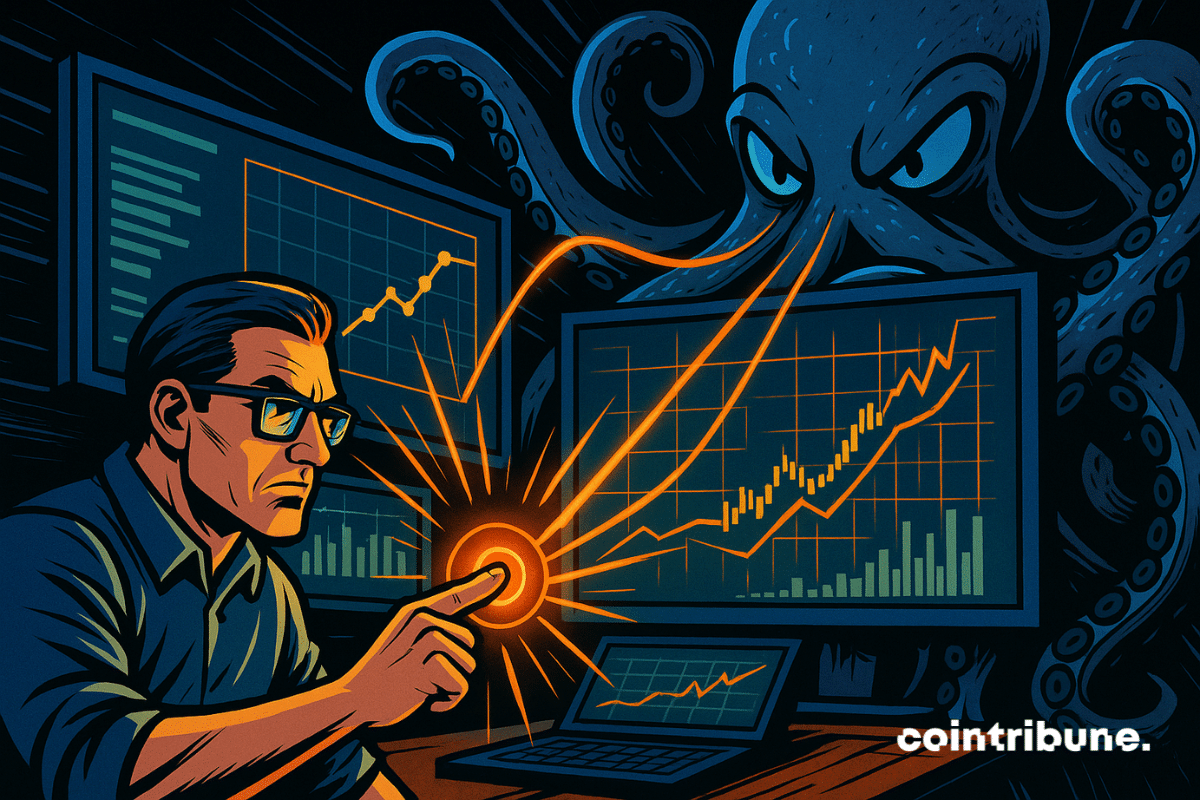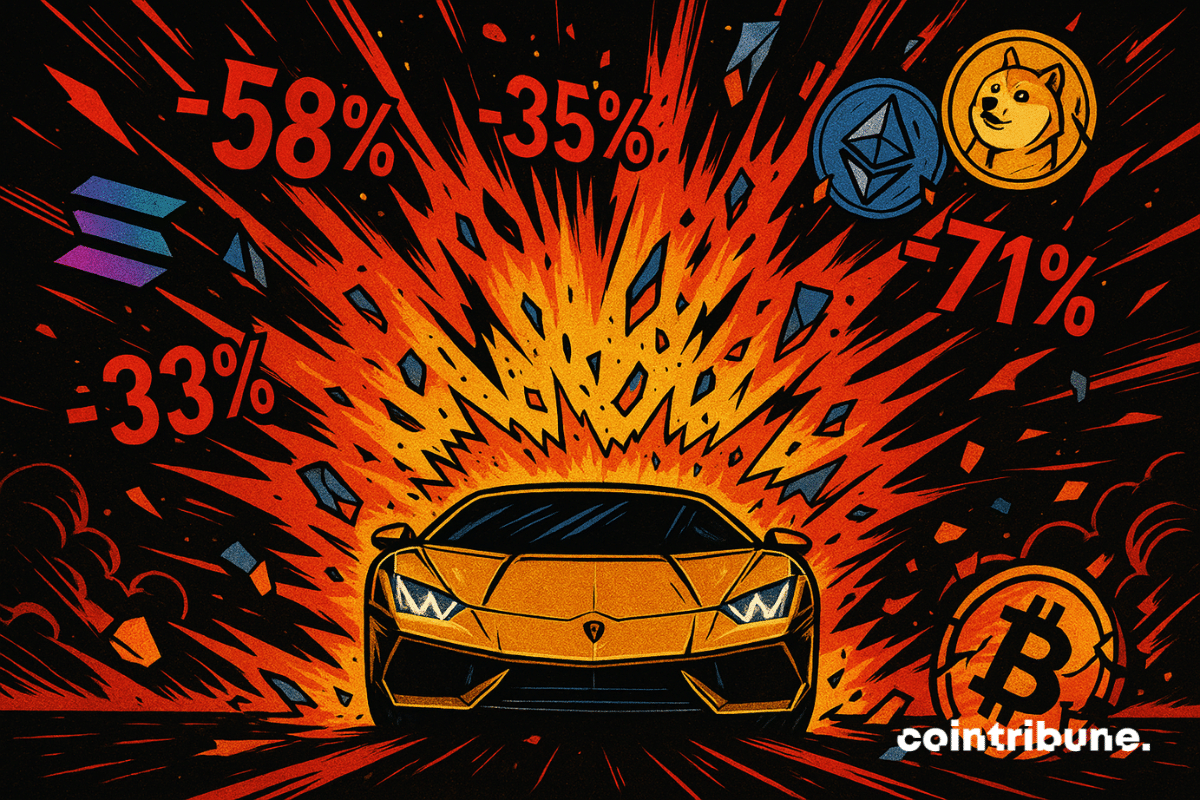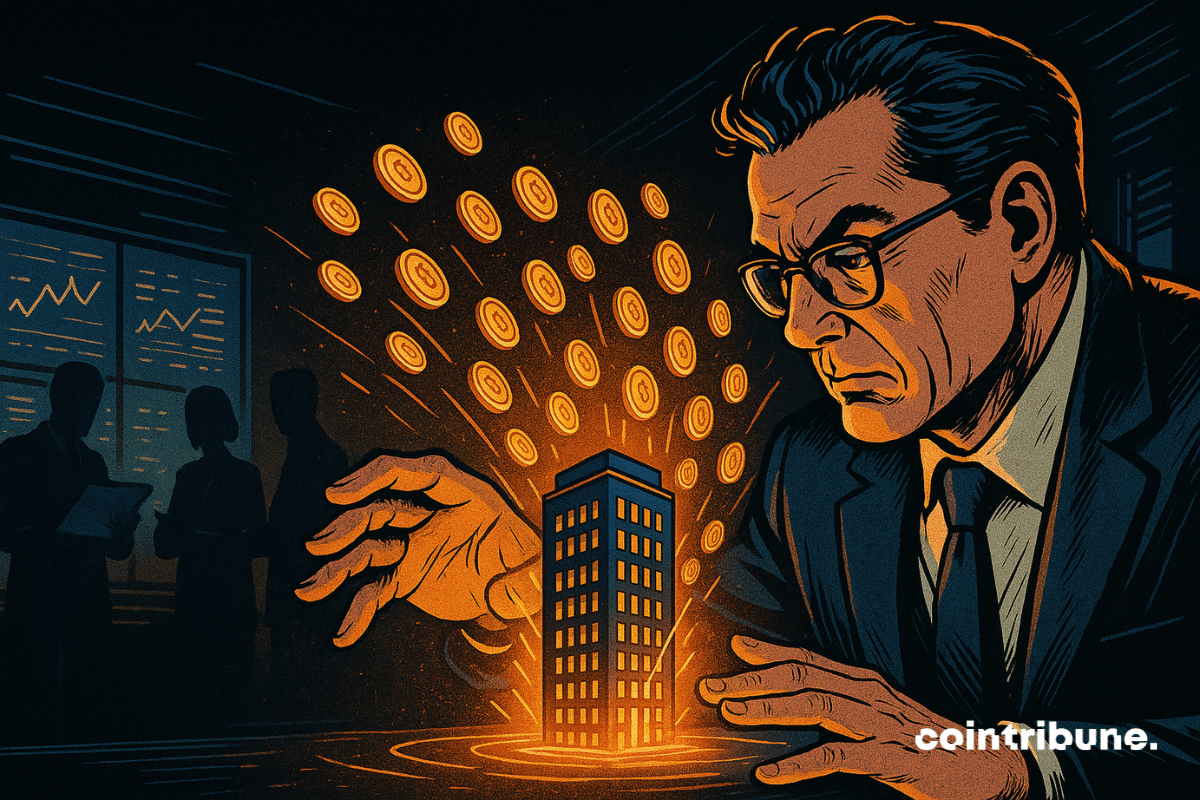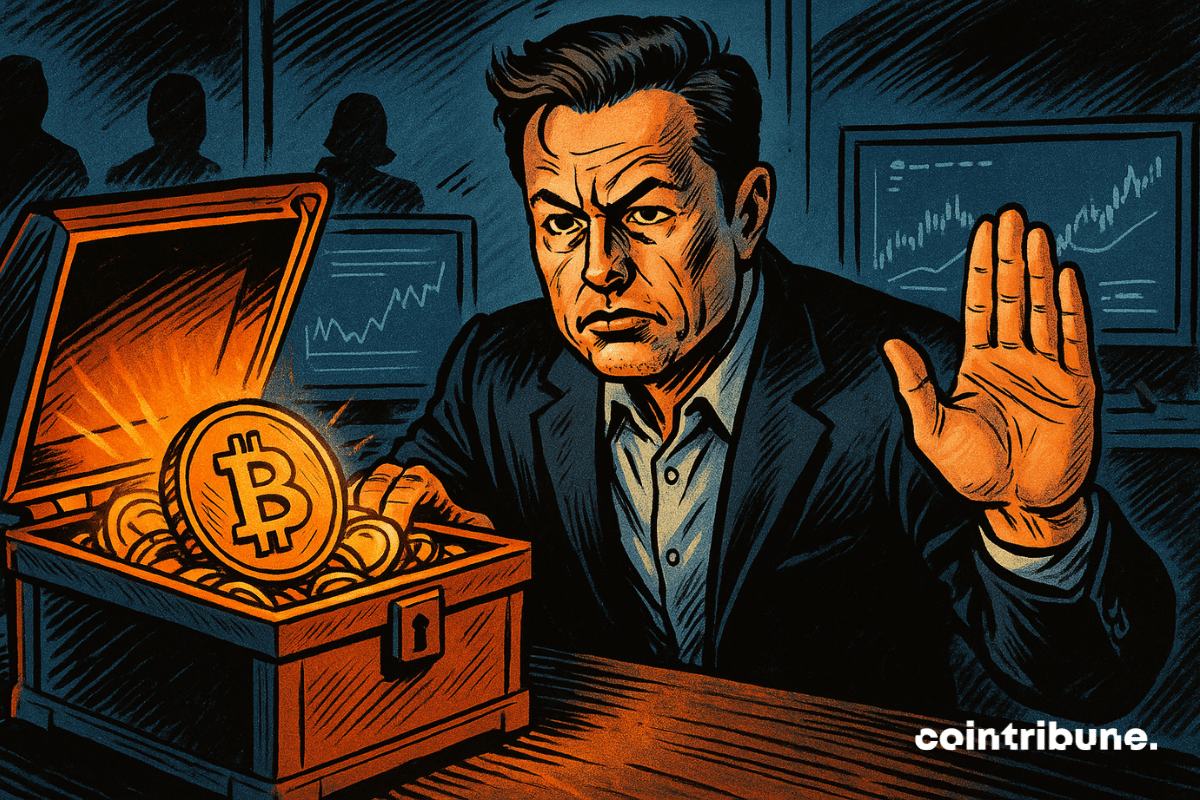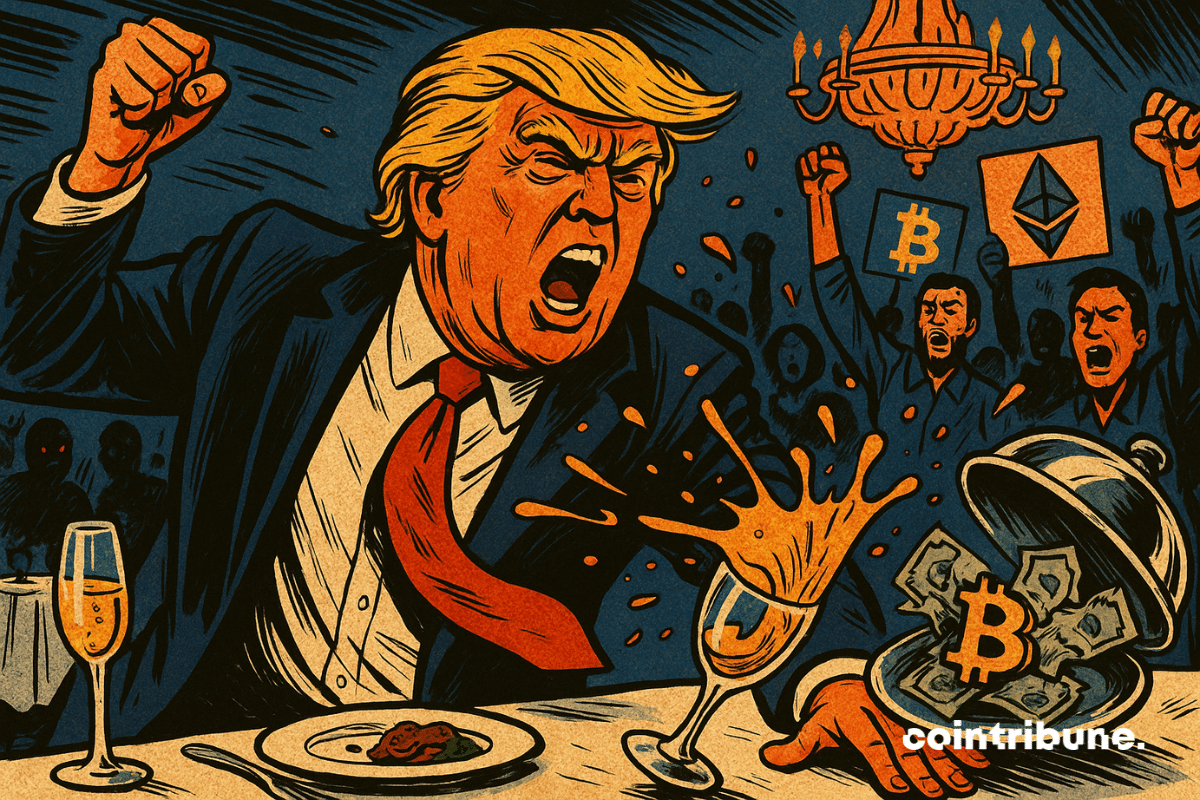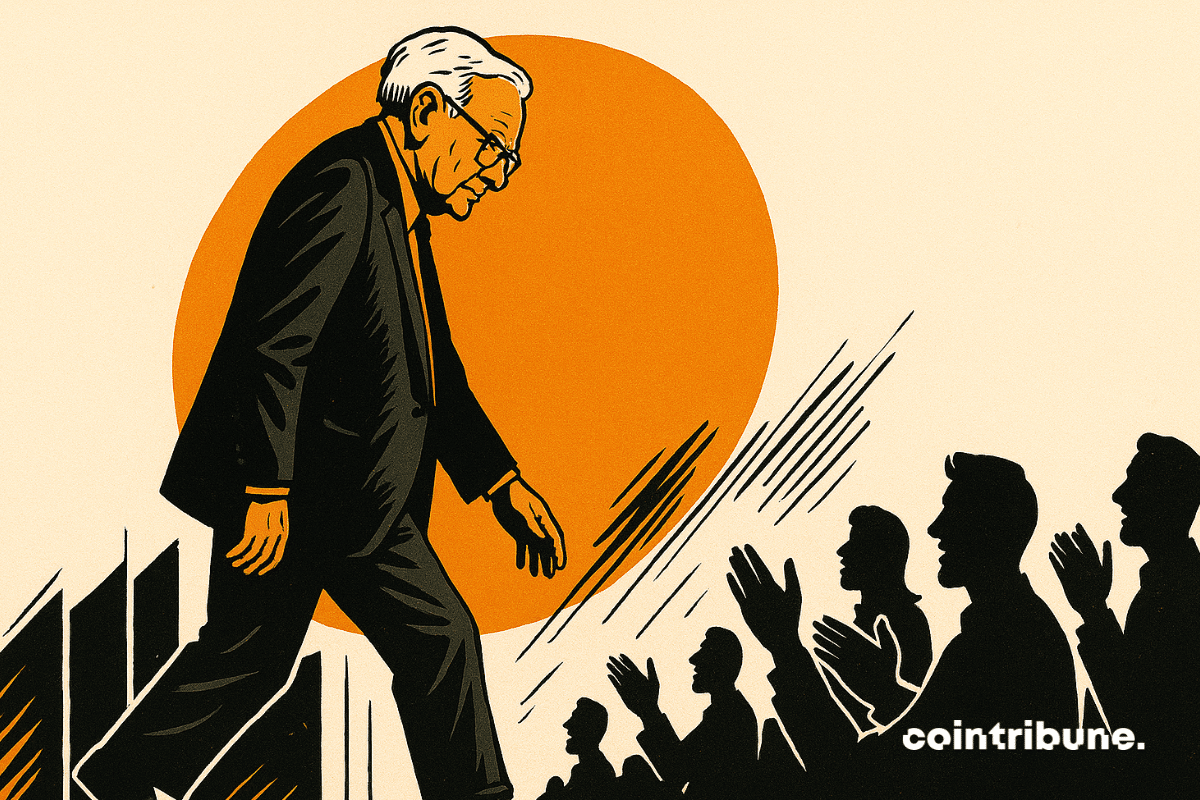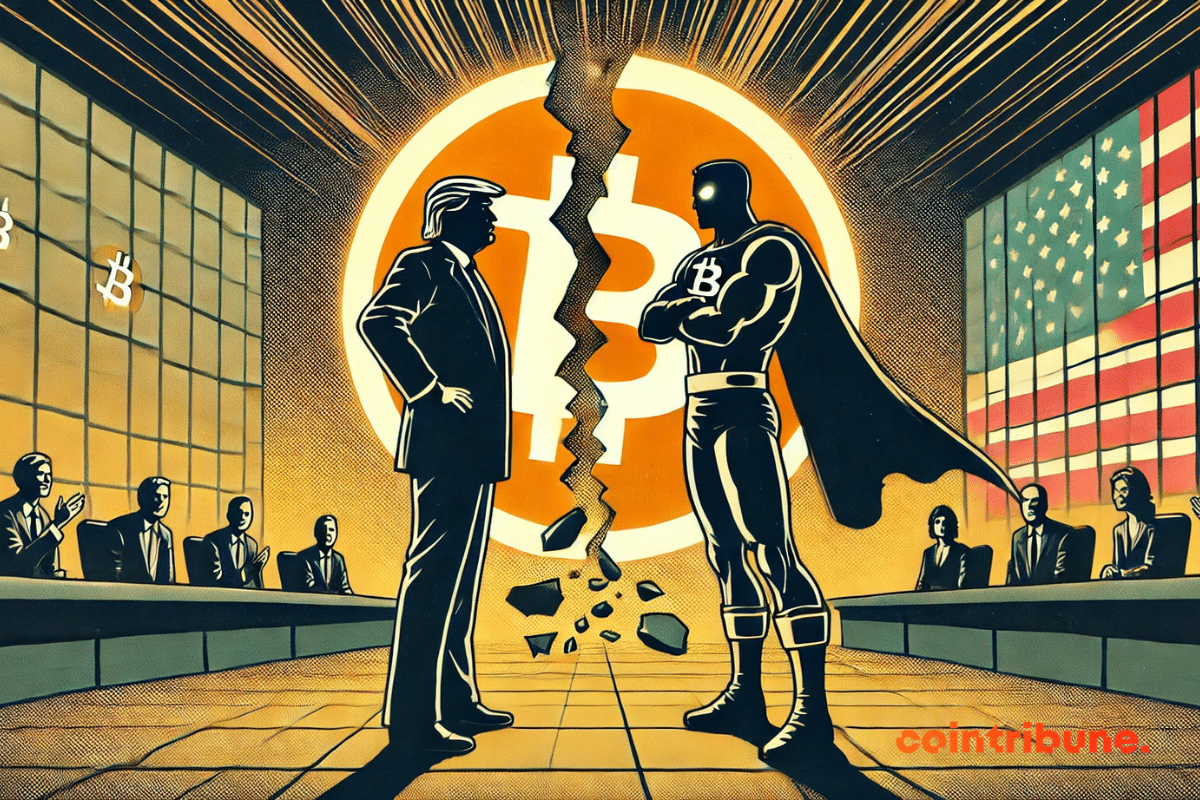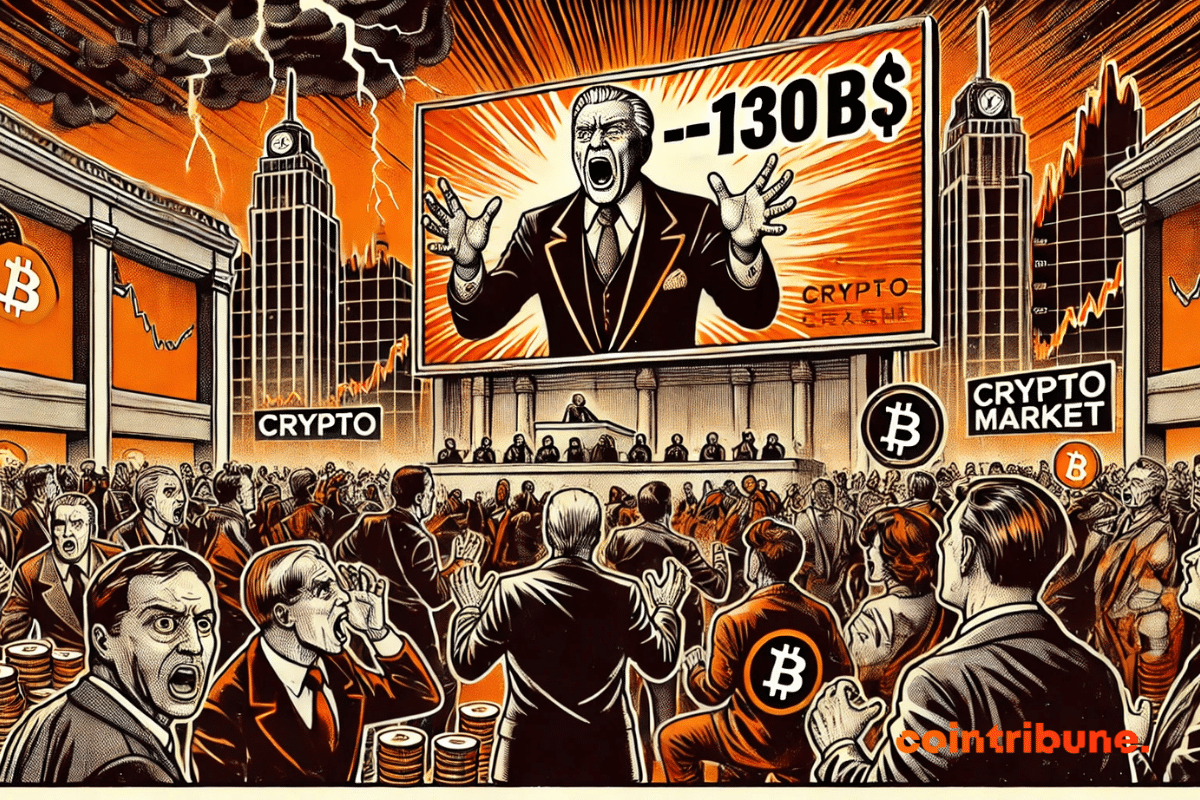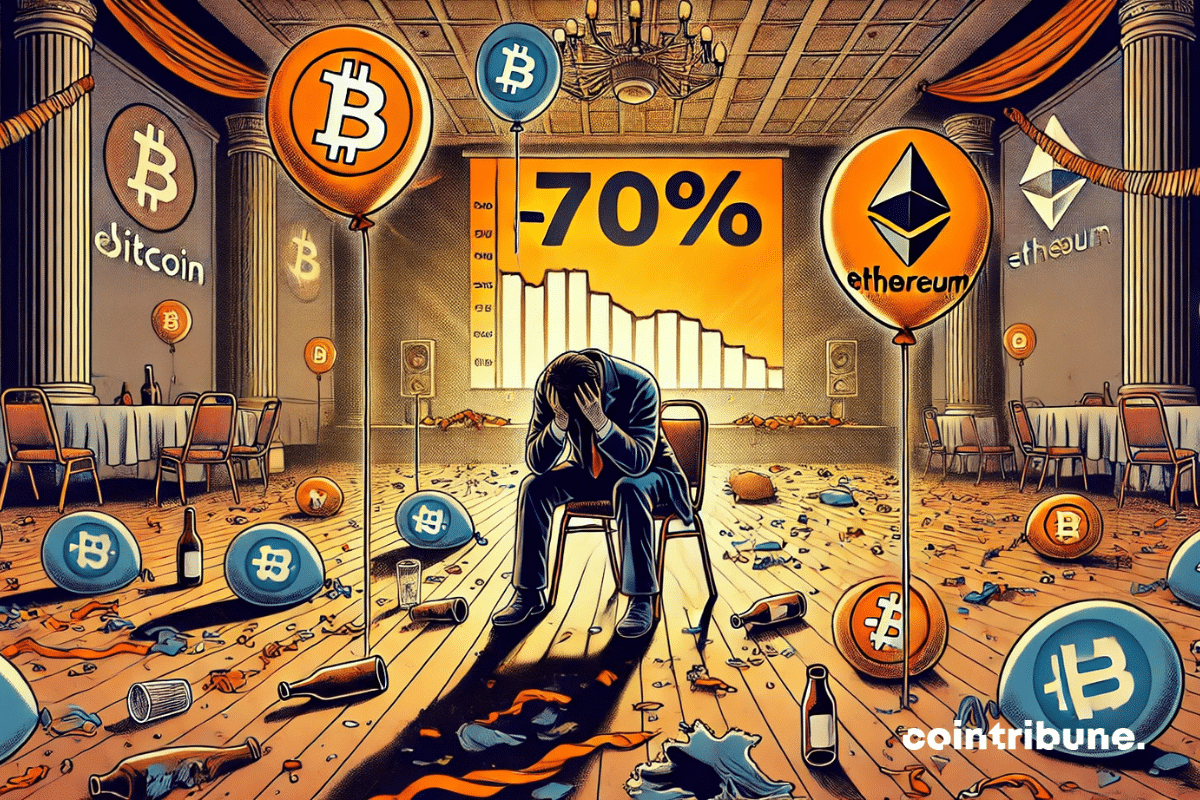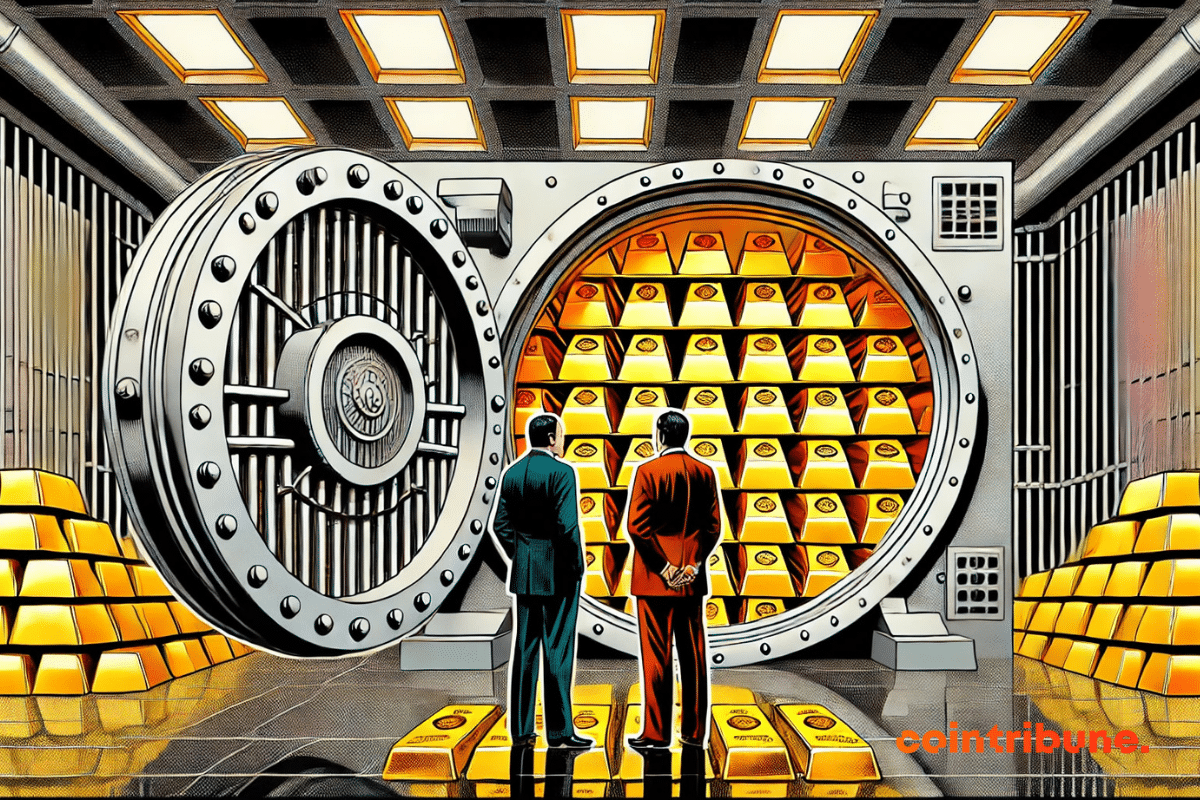The crypto market continues to grow, attracting an ever-increasing number of curious or eager users to invest. Yet, faced with the complexity of technologies like blockchain, access to clear and reliable information remains a real challenge. In this technical environment, Kraken establishes itself as a strategic partner for both individuals and businesses. The platform is not limited to buying or selling digital assets. It offers you a true educational accompaniment. Thanks to a rich and structured resource center, as well as a responsive and available customer support at all hours, Kraken places education and assistance at the heart of the user experience.
Investissement
Investing in digital assets now appeals to a much broader audience than just tech enthusiasts. Even cautious investors are turning their attention to this emerging asset class, seen as a serious alternative in the face of growing instability in traditional financial markets. Cryptocurrencies bring a new form of diversification built on innovation, decentralization, and growth potential. In this fast-evolving environment, Kraken stands out as a reliable bridge between traditional finance and the crypto world. This article explores why Kraken is a relevant tool to diversify your portfolio within a secure, educational, and structured framework.
Security remains one of the main concerns for investors in the field of cryptocurrencies. Recent scandals, large-scale hacks, and losses due to poor management of private keys have increased mistrust towards certain platforms. In this context, transparency and the robustness of the infrastructure become decisive criteria. Kraken stands out as a reference in the protection of digital assets, thanks to a rigorous approach and proven security measures. This article highlights the concrete mechanisms put in place by Kraken to guarantee the security of funds, while providing users with tangible and verifiable proof.
The crypto market is no longer limited to speculative trading alone. A new approach is attracting investors: staking, which allows obtaining regular returns without giving up assets. This method appeals to both long-term holders and savers seeking additional income. Kraken offers a simple, accessible, and secure solution with rates reaching up to 17% APY depending on the selected asset. The platform combines performance, reliability, and transparency to provide a staking experience suited for all profiles. Let's explore together the advantages of this strategy and the guarantees offered by Kraken in its regulated environment.
Crypto trading at a professional level relies on execution speed, precision of tools, and rigorous risk management. Many active traders, tired of the limitations imposed by generalist platforms, choose Kraken Pro to enhance their efficiency. This solution is intended for those seeking competitive fees, margin access, derivatives products, and high-level technical infrastructure. Kraken Pro combines performance, security, and adaptability to meet the demands of experienced investors. In this article, we analyze in depth the strengths of this platform and the reasons that encourage traders to adopt it in the face of sometimes disappointing competition.
In the crypto world, trust is an essential pillar. As scandals multiply, more and more users turn to platforms capable of guaranteeing the security of their funds and the transparency of their operations. Kraken stands out as one of the industry's references, alongside Binance, Coinhouse, or Bitpanda, while focusing on a rigorous and sustainable approach. This guide highlights Kraken's main strengths: a solid regulatory framework, proven security, a wide range of services, and recognized performance. The goal is to help each user invest in crypto-assets with peace of mind.
The world of cryptos is generating increasing interest among the general public, driven by the evolution of bitcoin and digital assets. However, for a new investor, making a first purchase can cause hesitation and confusion. Kraken offers a clear alternative to this complexity. Thanks to a streamlined interface, a quick registration process, and purchase options accessible from 10 euros, the platform paves the way for a calm first experience. Security, education, and simplicity are at the heart of its approach. This article guides beginners step by step who wish to acquire their first cryptos without obstacles or unnecessary jargon.
What if Sam Bankman-Fried finally escaped his 25 years in prison? Since Donald Trump granted a pardon to CZ, founder of Binance, a wild rumor is growing: that of a possible presidential pardon for the former head of FTX. Long considered absurd, the idea is gaining ground, fueled by an explosion of bets on Polymarket.
This Saturday, the body of Konstantin Ganich, an influential figure in the Ukrainian crypto scene, was found in a Lamborghini, amid the market collapse. The announcement, relayed on his official Telegram channels, immediately shook the community. This brutal tragedy reminds us that, behind the displayed profits and luxury cars, psychological pressures remain immense in a universe where every price drop can turn into a tragedy.
Tesla is betting everything on Elon Musk with an unprecedented compensation plan. We provide you with all the details in this article.
The tokenization of real assets (RWA) is no longer a laboratory experiment: it is a global undertaking that, quietly, is rewriting the way we own a building, a government bond, or a corporate debt. The idea is simple: to represent an economic right (rent, coupon, dividend) by a token registered on a blockchain, exchangeable at any time and, above all, programmable. But behind the apparent simplicity hides a legal, technical and financial mechanism that is refined month after month.
The man behind Tesla and SpaceX wields tweets like market levers, oscillating between sarcasm, fascination, and caution. In October 2021, he urged not to "bet the farm" on cryptos. However, he later confessed to having acquired, "out of curiosity," Bitcoin, Ethereum, and Dogecoin. Such a paradox raises a central question: Is Musk acting as a mere clear-sighted observer or as a fully engaged actor in an ecosystem he inadvertently helps to steer?
When the rich drop the mask to take matters into their own hands, Elon Musk becomes the inspiration for a game where the powerful have fun... killing. And what if the series were no longer fiction?
The mix of politics, extravagance, and cryptocurrencies promised an explosive cocktail. It mainly resulted in culinary discomfort and hollow speech. During the highly selective dinner organized by Donald Trump to honor the biggest holders of his eponymous memecoin, one guest did not hold back: "ridiculous,” "junk," "bullshit." The event, meant to embody the seriousness of a committed crypto turn, turned into unintentional satire. And it was the hors d'oeuvres, like the promises, that went down poorly.
When Elon Musk plays politics with Trump, it's Tesla that stumbles at the start. Between free falls, a hesitant board, and angry tweets, the Empire of the tweet dangerously wavers.
Buffett leaves the ship in the middle of a storm, handing the helm to Abel and a fortune along the way. And he continues to preach discipline, even surrounded by flames, debts, and burning cryptos.
Trump and Bukele, in their meeting at the White House, ditch Bitcoin to talk about prison and commerce. The future of crypto? It will have to wait until serious matters are settled.
Charles Hoskinson made a post that says a lot. The man behind Cardano declares that his work is autonomous. No need for him anymore, it seems. However, he does not leave the stage quietly. He talks about a risky journey, a possible death. And above all, he insists: Cardano is decentralized. It's up to you to judge whether he is taking his bow or launching a new magic trick.
In the shadow of tyrannies, outstretched hands receive satoshis. The HRF sows crypto light in the invisible pockets of silent resistances, where fiat no longer prevails.
While European markets are experiencing a technical rise, attention turns to Washington. Supported by encouraging economic indicators, the main stock indices of the Old Continent closed in the green this Tuesday. However, this improvement remains fragile. Investors are holding their breath ahead of potentially decisive announcements from Donald Trump, who could reignite the United States' trade offensive. The possibility of new customs barriers raises tensions and threatens to reshape the dynamics of the global economic balance.
Solana groans, Bitcoin stumbles. The crypto market, drunk with hope yesterday, is reeling under the blows of tariffs. Trump did not free the dollar, but rather chained digital assets.
As wealth inequalities worsen, another reality looms: Generation Z, often perceived as economically fragile, is set to become the richest in history by 2045. A study by Bank of America challenges preconceived notions by projecting an unprecedented shift of wealth towards this hyperconnected youth. Contrary to alarmist narratives, these forecasts reveal a generation on the rise, driven by economic, educational, and digital dynamics that are reshaping the contours of global financial power.
A cold wind blows over crypto. The post-electoral momentum is fading. Bitcoin and Ethereum are wavering. The market looks elsewhere, uncertain, without a compass, waiting for the next breath.
Gold is no longer just a safe haven. It has become an instrument of economic power. In 2024, the BRICS have massively accumulated the precious metal, anticipating a tightening of American trade policies. This bet is proving to be worthwhile, as the new tariffs announced by Donald Trump triggered a historic surge in gold prices. As the trade war intensifies, the yellow metal is asserting itself as the monetary weapon of emerging powers against the dominance of the dollar.
Nubank adds 4 new assets to its portfolio. A strategic expansion that could be a game changer in the Brazilian crypto market!
The world of crypto continues to blur the lines with traditional finance. This time, it's BlackRock making a media splash by integrating Solana into its tokenized monetary fund, BUIDL. This decision is not just a simple technical adjustment, but a strong signal: blockchain is no longer a marginal experiment. It is becoming the backbone of a financial revolution in progress.
Finally, the wall of distrust is crumbling. BoursoBank, the French giant of online banking, reaches a historic milestone by incorporating crypto ETPs into its offering. A notable turnaround for this subsidiary of Société Générale, which has long been distant towards digital assets. By partnering with CoinShares, the European leader in the sector, the platform breaks into the traditional world of finance. Bitcoin, Ethereum, XRP... These names now resonate in the portfolios of ordinary investors. One more step towards the normalization of cryptos? Much more: a silent revolution.
Russia is at a major economic turning point, burdened by surging military expenditures and an escalating energy crisis. As financial resources dwindle, the cost of the conflict in Ukraine becomes unsustainable. By 2025, rising military spending and falling energy revenues will confront the country with an unprecedented economic challenge.
The announcement was like a pin pulled grenade: Trump Media (DJT), the company behind Truth Social, is partnering with Crypto.com to launch a range of ETFs and exchange-traded products (ETPs) starting in 2025. In the wake of this news, DJT stock jumped by 9% in after-hours trading. Far from being just a media stunt, this partnership marks a key milestone in Donald Trump’s strategy to infiltrate the crypto ecosystem. Between blockchain technology and electoral ambitions, we analyze an audacious move.
In the midst of a volatility session, crude oil has seen a spectacular turnaround, driven by major geopolitical signals. This resurgence, far more than a technical rebound, fits into a broader strategic dynamic. As markets scrutinize the link between raw materials and cryptocurrencies, this development reconfigures the balances within energy markets.




